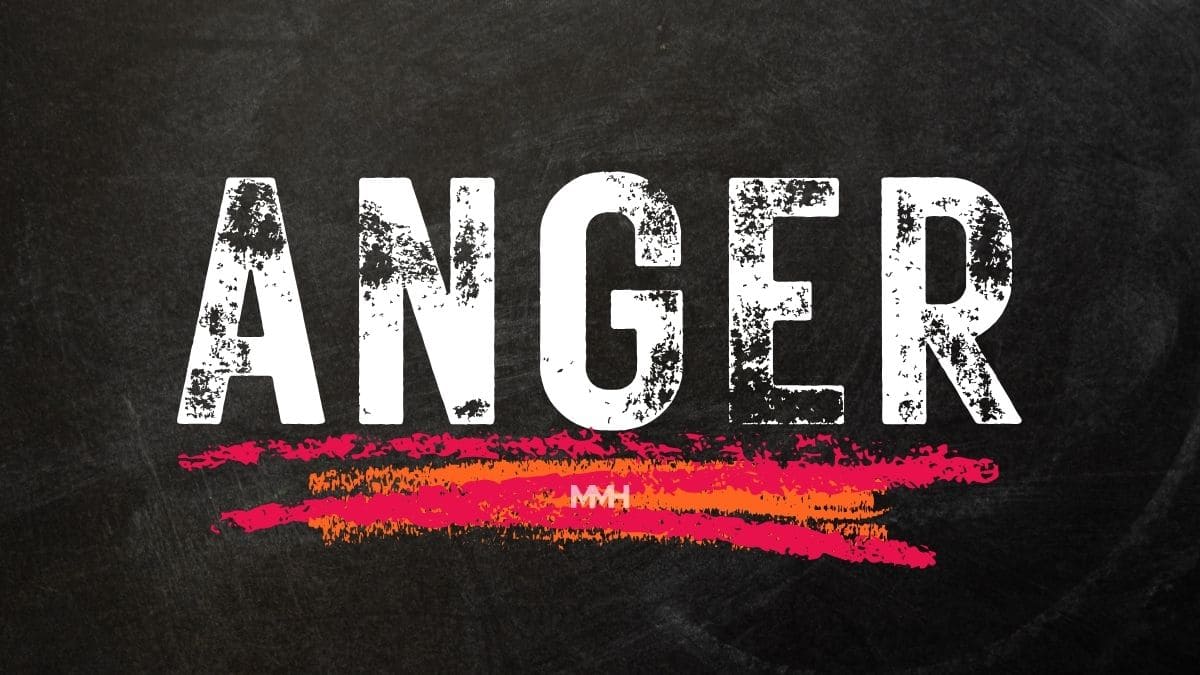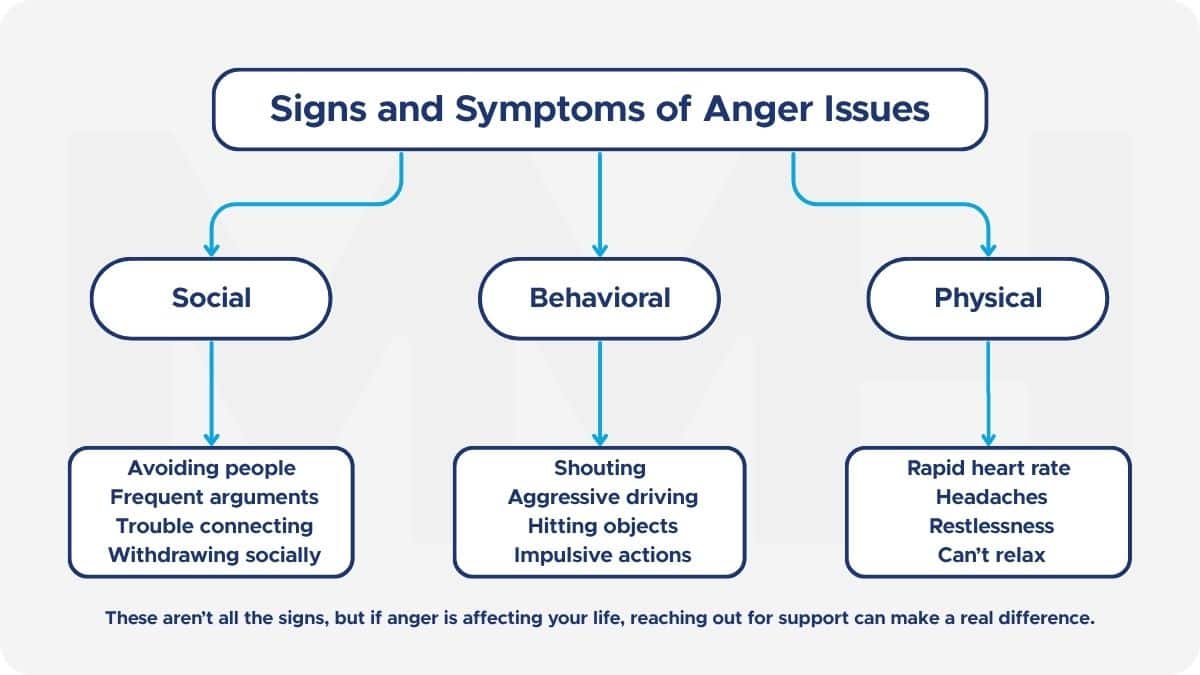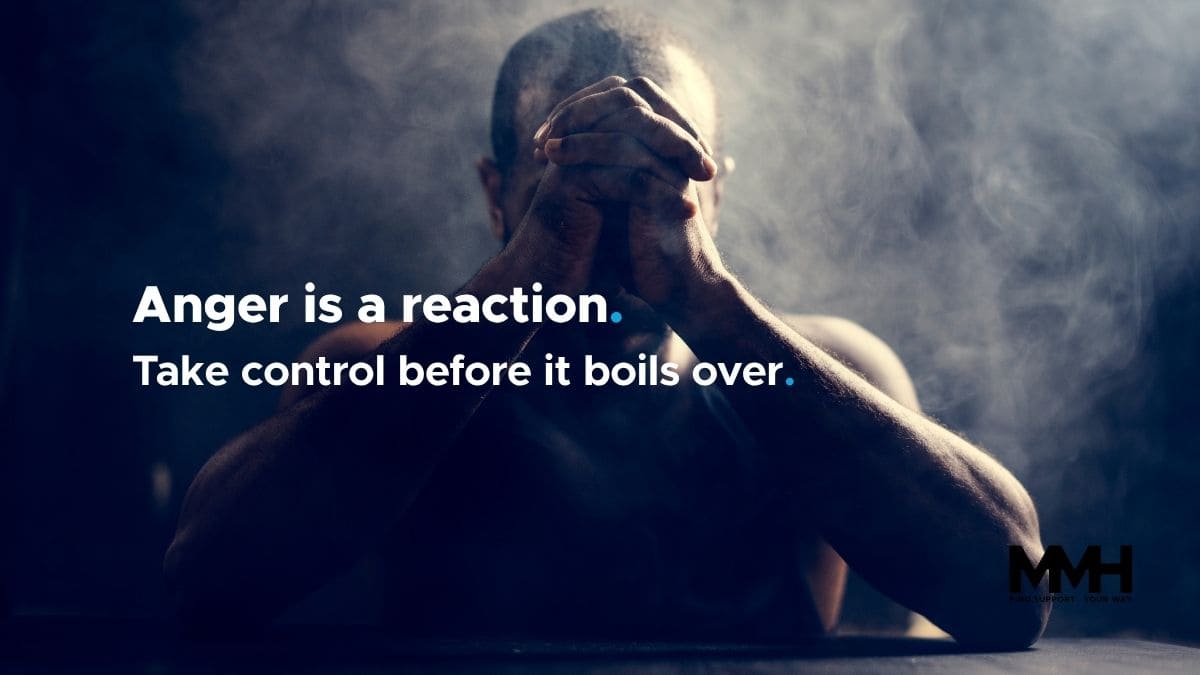MMH Men’s Mental Health does not provide direct mental health support. We do not offer crisis intervention, therapy, counselling, or medical advice. Instead, we provide information and signposting to external services that may be able to help.
Anger
Jump to on this page;
Finding it hard to manage? You don’t have to go through it alone.
Need to talk?
Samaritans are here to listen, 24/7, 365 days a year. You can call them for free on 116 123 or visit www.samaritans.org
Prefer to Text?
Shout is a free, confidential, 24/7 text messaging support service for anyone who is struggling to cope.
If you feel in danger please call 999 or go directly to emergency services.
Unleash Control, Not Fury: Anger Management for Men
Anger is a natural emotion, but when it spirals out of control, it can damage relationships, hurt those around you, and affect your mental health. Many men struggle to manage their anger, often bottling it up or expressing it in unhealthy ways.
If anger is affecting your life, relationships, or work, it’s time to take action.
This page covers:
- ✔ What anger management is
- ✔ What causes anger issues
- ✔ Signs and symptoms of anger struggles
- ✔ Different types of anger
- ✔ How to manage anger in a healthy way
✨ This journey through Anger empowers you to discover inner strength and new paths to greater peace.

What is Anger Management?
Anger management isn’t about suppressing anger—it’s about understanding it and channeling it constructively. Learning how to manage anger effectively can help you:
- ✅ Recognize early warning signs before anger escalates
- ✅ Identify triggers that spark your anger
- ✅ Develop healthy coping strategies to manage frustration
- ✅ Express your feelings assertively without resorting to aggression
📌 Unchecked anger can lead to relationship breakdowns, health issues, and even legal consequences.
💡 By gaining clarity on what Anger truly entails, you're already empowering yourself to face and address its challenges effectively.

What Causes Anger Issues in Men?
There’s no single cause, but common contributing factors include:
- 🔹 Social Conditioning – Pressure to appear tough and “bottle up” emotions can lead to built-up frustration.
- 🔹 Stress – Work deadlines, financial burdens, and relationship issues can all fuel anger.
- 🔹 Mental Health Struggles – Depression, anxiety, and trauma can manifest as anger issues.
- 🔹 Substance Use – Alcohol and drugs can lower inhibitions, making it harder to control anger.
📌 Ignoring anger issues can lead to serious consequences—from ruined relationships to increased risk of violence.
🔍 Each cause of Anger you identify is an opportunity to forge new coping mechanisms and stronger foundations.

Signs and Symptoms of Anger Issues
Anger can manifest in different ways. Recognizing these patterns can help you take proactive steps toward managing it effectively.
🟠 Physical Indicators
- Increased heart rate, sweating, and muscle tension
- Frequent headaches or a persistent feeling of restlessness
- Difficulty relaxing and experiencing ongoing frustration
🟠 Behavioral Patterns
- Speaking loudly, using strong language, or acting impulsively
- Experiencing frustration while driving or reacting aggressively
- Expressing anger physically, such as hitting objects
🟠 Social Challenges
- Pulling away from social interactions or avoiding conversations
- Frequent conflicts or tension in personal and professional relationships
- Struggling to connect due to the impact of anger-driven reactions
Seeking Support: If these signs are becoming frequent or more intense, exploring professional guidance or anger management strategies can be beneficial.
❤️🩹 Acknowledging the symptoms of Anger is a brave step towards reclaiming your well-being and finding the right path to recovery.

Different Types of Anger
Anger doesn’t always look the same. Understanding the types of anger can help you find better ways to cope.
🟡 Passive-Aggressive Anger
- Using sarcasm, pouting, or giving the silent treatment
- Expressing anger indirectly rather than addressing it
🟡 Outward Aggression
- Yelling, swearing, or displaying physical aggression
- May escalate to violence or destructive behavior
🟡 Internalized Anger
- Bottling up frustration, which can contribute to depression and anxiety
- Engaging in self-destructive behaviors like substance abuse
📌 Recognizing your anger type can help you develop healthier coping strategies.
🛠️ With clarity on the nuances of Anger, you gain the tools to navigate its complexities with greater confidence and purpose.
Explore More
Anger Management
- Anger Manage UK offers resources and courses for managing anger issues.
- Mind - Anger offers information and support for anger management.
- Counselling Directory provides a directory of counselors specializing in anger management.
- Get Self Help offers self-help resources for managing anger effectively.
While we aim to provide accurate and updated information, MMH Men’s Mental Health is not responsible for the quality, accuracy, or availability of external services linked on this page. If you notice a broken link or have a resource to suggest, let us know.
Self-Help Strategies for Difficult Times
No single approach works for everyone, but these steps can be a great starting point.
If your struggles persist or affect your daily life, consulting a professional is recommended.
Identify Your Triggers
Take a Time Out
Express Yourself Clearly
Find Healthy Outlets
Consider Therapy
You Are Worthy of Support.
You don’t have to face this alone - there are people who care.
Take the next step:
Need to talk?
Samaritans are here to listen, 24/7. You can call them for free on 116 123 or visit www.samaritans.org
Prefer texting?
Shout offers free, 24/7 confidential support. Text ‘SHOUT’ to 85258 to start a conversation or visit
www.giveusashout.org
Explore More
Looking for guidance? Browse external resources on mental health, self-care, and well-being.
Support Groups
Find connection. Join an external support group and connect with others who understand.
